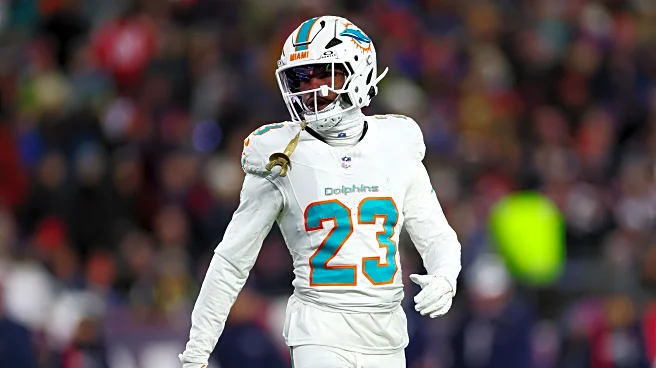What's Happening?
During a Senate Finance Committee hearing, Senator Maria Cantwell from Washington criticized Health Secretary Robert F. Kennedy Jr. for canceling significant research funding for mRNA vaccines, which she argues is crucial for future pandemic preparedness. Cantwell labeled Kennedy a 'charlatan' for undermining the healthcare system and not following scientific standards. Kennedy defended his actions, claiming they were necessary to restore the CDC's role as a leading public health agency. The hearing highlighted bipartisan concerns over Kennedy's decisions, including the firing of the CDC's vaccine advisory panel and the appointment of anti-vaccine activists to advisory roles.
Why It's Important?
The defunding of mRNA vaccine research by Kennedy has raised alarms about the U.S.'s readiness for future pandemics. The global economic impact of COVID-19, estimated at $82 trillion over five years, underscores the importance of preparedness. Cantwell's criticism reflects broader concerns about the direction of U.S. healthcare policy under Kennedy's leadership, potentially affecting public trust in vaccines and the country's ability to respond to health crises. The controversy also highlights tensions between political leaders and health officials over science-based policy decisions.
What's Next?
Senator Cantwell and other lawmakers may continue to challenge Kennedy's policies, potentially leading to further scrutiny and legislative action. The debate over vaccine research funding and public health preparedness is likely to persist, with implications for future healthcare policy and pandemic response strategies. Cantwell hopes that Republican colleagues will join in pressing the administration to adhere to scientific standards and ensure the U.S. is equipped to handle future health emergencies.
Beyond the Headlines
The ethical implications of Kennedy's actions raise questions about the balance between political influence and scientific integrity in public health policy. The appointment of anti-vaccine activists to advisory roles could undermine decades of vaccine safety research, affecting public perception and vaccination rates. Long-term shifts in healthcare policy may emerge from this debate, influencing how the U.S. prepares for and responds to global health threats.









